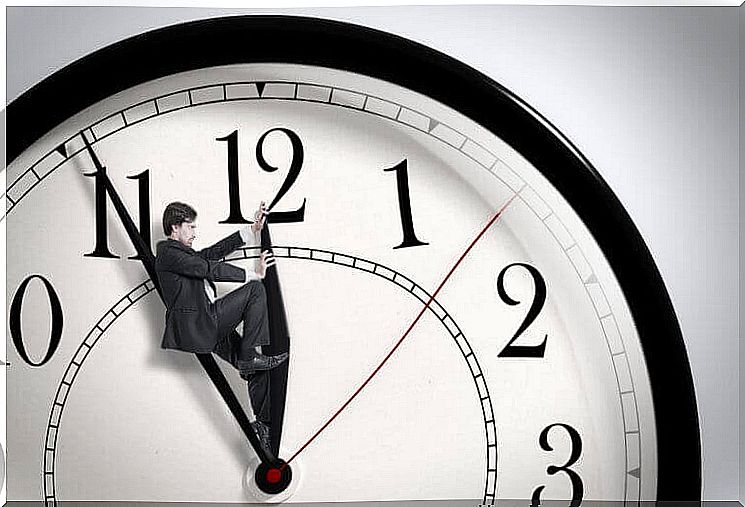Procrastination: What Is Behind This Habit?
Most of the time people who put things off have a big problem with the organization. They don’t differentiate between priorities and less important tasks. You cannot delegate.

Do you remember the saying: “What you can get today, don’t postpone it until tomorrow”? Well, procrastination is just the opposite of that. It is a matter of postponing tasks.
But what is actually behind the habit of procrastinating?
People who procrastinate often, that is, postpone things, cannot avoid that. It’s like a force majeure that occasionally has nothing to do with laziness, but with other factors.
Discover some of them below.
1. Procrastination when suffering from anxiety

Many people tend to put off certain tasks because they don’t know how to properly control their emotions and stress. That can ultimately lead to anxiety.
They tend to have a fearful personality, are easily distracted, and often see projects as too big and incomprehensible. Because of this, they decide to just postpone everything they have to do.
In many cases, this doesn’t happen because they have other projects to focus on. In general, they tend to waste their time or devote less important projects. This happens even if important projects with special priority are postponed.
There are certain circumstances when people with anxiety are prone to procrastination, such as through self-deception or when they have many excuses. The following are examples of this:
- “I’m not very focused right now. I’ll do it tomorrow when I have more inspiration. “
- “I do not feel very well. I’ll work on the things that are more mechanical and don’t get on with the other tasks until I feel better. “
- “There are other things I can do right away. I’m working on these now and save this for last. “
As you can see, people with anxiety will look for an instant reward to help them feel better and avoid uncomfortable situations.
However, in the long run, this can make the situation a lot worse as it will waste a lot of time that way.
2. A lack of organization

If we are talking about procrastination, then it is very likely that the person who is putting everything off also has a serious organizational problem.
Everyone wants to organize everything in their own way that works best for him or her. The fact is that everyone is different.
However, it is always necessary that certain priority tasks be kept in mind.
Of course, there are different tasks that you can procrastinate. Either because you scheduled it for later, put it off until another day, or maybe even passed it on to someone else.
However, what usually happens is that getting things done that are high priority are postponed and postponed.
Because of this, having a good organization can keep you from procrastinating, and when the time comes, you may even have some time to spare.
To keep your organization really clear, it is best to focus on the priorities of your tasks. The Eisenhower matrix is particularly recommended for this.
There are four blocks in this matrix, which are classified according to importance and urgency. Using it wisely and really sticking to it can help you overcome procrastination.
3. You overestimate how much time you have left

Those people who are not very punctual understand very well what it means to overestimate time. You may think that you still have more than enough time to do certain things. For example, before meeting friends. However, the reality is very different.
People who procrastinate tend to overestimate their time. At the same time, it goes hand in hand with some excuses and also self-deception that makes the whole thing even more difficult.
To take an example, people who procrastinate may think they will be able to complete certain tasks in just two days.
However, there is usually some kind of complication, a problem or even certain doubts. All of this ultimately shortens the amount of time they have available.
So if you misjudge the time available to you, it can be a burden. All of a sudden you feel stressed and think you won’t be able to finish the task in time.
As a result, the work may not be as good as it could have been. You will not be satisfied with the result.
To prevent this from happening, it is important to keep an eye on the Eisenhower Matrix: it will help you take care of urgent work. At the same time, you can prevent your fears and the tendency to overestimate the time available.
The sooner you do a task that you are not motivated to do, the better. Then you will have enough free time to do other activities that are less important. Eventually, you will feel that you have made some progress.
You can certainly remember your childhood when your parents said to you: “First you learn, then you can do other things.” It is no different in adulthood either. First the important things come first, then comes the pleasure.









